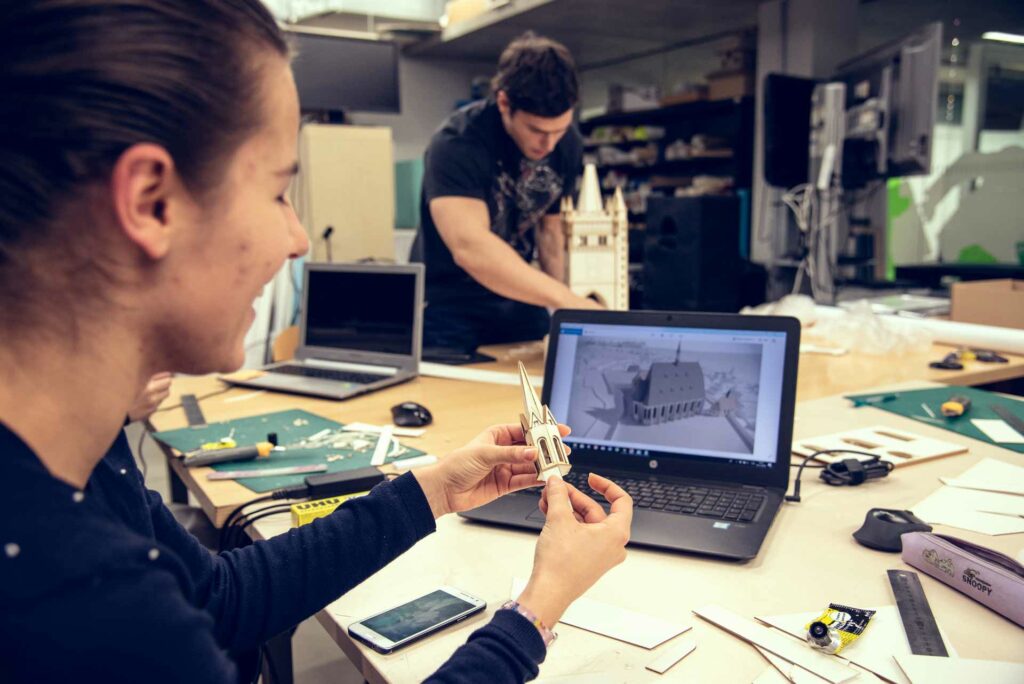The branch is part of the Master’s programme in Civil Engineering that aims at educating engineers to fully master the complex design of buildings. The SAHC branch is an international double-degree Master’s course, whose objective is to offer advanced engineering teaching in the conservation of structures, with a focus on architectural heritage. The training is based on the application of scientific principles in the analysis, innovation and practice of the conservation of monuments and historical constructions worldwide. The instruction and supervision of theses is provided by the academics and experts from four higher education institutions:
and a satellite partner
1 year
(60 ECTS credits)
1st semester (September – March)
2nd semester (April – July)
The admissions proceedings are not organized by the Faculty of Civil Engineering CTU in Prague, but via the SAHC Secretariat, University of Minho, Portugal. Applications can be submitted in three deadlines (three calls), which are set every year.
The information on the admissions proceedings, tuition fees, scholarships and the form for submitting the application can be found on the SAHC website.

The objective of SAHC is to offer an advanced education programme in the conservation engineering of structures, with a focus on architectural heritage. The Master’s course combines the diversity of expertise at the leading European universities in the field, offering education oriented to a multidisciplinary understanding of structural conservation through the involvement of experts from complementary disciplines (engineers, architects, materials scientists and others). Students face top level structural analysis knowledge in a research oriented environment, with close cooperation with the industry and a focus on problem solving.
The Master’s course provides cross-disciplinary education comprising engineering oriented issues (experimental techniques, computer modelling, structural analysis, seismic behaviour and structural dynamics, repairing and strengthening techniques, surveying, monitoring, etc.) with more general methodological or philosophical concepts (history of construction and restoration, principles and methodology of conservation, building rehabilitation, etc.).
The main focus of this training is the application of scientific principles in the analysis, innovation and practice of the conservation of monuments and historical constructions worldwide. The course combines the most recent advances in research and development with activities oriented towards practical applications. In turn, the course pays significant attention to the regional differences shown by the architectural heritage and historical construction techniques within Europe or on a worldwide scale.

The graduates of the SAHC branch of will be employed primarily in:
The study is completed by the final graduation examination and the defence of a Thesis. The Thesis is elaborated during the 2nd semester. Students can select from the topics proposed by the FCE Departments and ITAM. Optionally, they may propose their own topic, which is subject to approval by the Thesis Supervisor considering its suitability and feasibility. Students may develop research, compilation, or case study theses (see examples from past editions https://msc-sahc.org/alumni-and-employability/theses/). Subsequently, the graduates are well prepared to apply for PhD programmes.
GUARANTOR
ACADEMIC COORDINATOR
ACADEMIC COORDINATOR
Responsible: prof. Ing. arch. Ing. Zuzana Pešková, Ph.D.
To provide the best experiences, we and our partners use technologies like cookies to store and/or access device information. Consenting to these technologies will allow us and our partners to process personal data such as browsing behavior or unique IDs on this site and show (non-) personalized ads. Not consenting or withdrawing consent, may adversely affect certain features and functions.
Click below to consent to the above or make granular choices. Your choices will be applied to this site only. You can change your settings at any time, including withdrawing your consent, by using the toggles on the Cookie Policy, or by clicking on the manage consent button at the bottom of the screen.